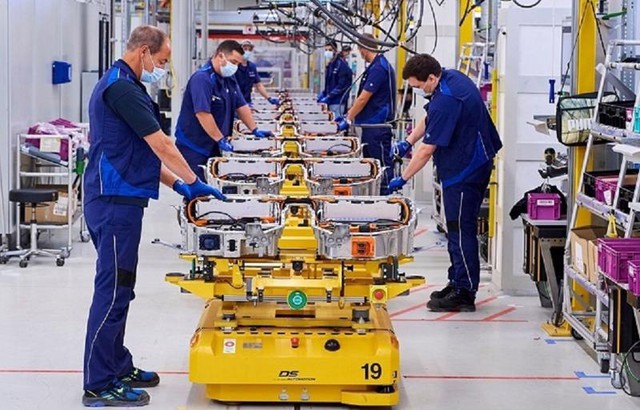Almost 70% of European businesses recommend Viet Nam as investment destination: BCI report
VGP - Almost 70 percent of European business leaders in Viet Nam would recommend the country as an investment destination. This continued positive sentiment reinforces business trust in the country’s economic wellbeing despite a challenging year.

Viet Nam retains its appeal as an investment destination for European businesses
The European Chamber of Commerce in Viet Nam (EuroCham Viet Nam) released its third quarter of 2024 Business Confidence Index (BCI) report on October 8, reflecting a positive trend in business sentiment despite the economic challenges posed by Typhoon Yagi and operational hurdles.
The BCI score saw a notable increase, rising from 45.1 in the third quarter of 2023 to 52.0 this quarter, signaling a strong year-on-year recovery despite tough external conditions.
The damage caused by Typhoon Yagi, which has severely impacted the infrastructure and agricultural sectors in Northern Vietnam, has led the Vietnamese government to forecast a 0.15 percent reduction in GDP for 2024, with estimated losses reaching US$1.63 billion.
Yet EuroCham's latest survey, conducted after the typhoon from September 12-25, shows that nearly half (47.4 percent) of respondents are confident their companies will see improvement in the coming quarter. Additionally, long-term optimism remains high, with 69.3 percent expecting a favorable business climate over the next five years.
Green transition and digitalization take center stage
Following the new Decree on the mechanism for Direct Power Purchase Agreement (DPPA) issued in July this year, nearly 30 percent of respondents expect to benefit from renewable energy projects, further solidifying Viet Nam's commitment to a green transition.
One in four service providers and companies with 100 or more employees anticipate the DPPA will benefit them moderately or significantly. While approximately half (47.4 percent) of surveyed businesses are confident in their ability to fully transition to renewable energy by 2050, gaps remain in policy understanding and implementation.
Digitalization was also identified as a critical area for improvement, particularly in alleviating human resource constraints and streamlining administrative processes. The BCI survey revealed a moderate rate of artificial intelligence (AI)/machine learning (ML) adoption, with 46.1 percent of companies reporting to have adopted AI/ML in their operations. However, most adoption remains in the early stages, pointing to substantial opportunities for investment in digitalization projects.
Business travel and expansion trends
In addition to digitalization, businesses are adapting their travel strategies in response to rising airfares. Over 40 percent of respondents reported becoming more selective with their business trips or opting for alternative transportation due to high travel costs, while some have reduced or cancelled travel plans altogether.
Despite these hurdles, business expansion plans remain strong, with close to 80 percent of companies reporting 1-3 offices or manufacturing units in Viet Nam. Among businesses that shared their expansion plans, over half plan to expand operations, with many intending to establish new manufacturing facilities in the North or open additional offices in key cities such as Ha Noi, Ho Chi Minh City, Da Nang, and Can Tho.
EuroCham's BCI survey is conducted by Decision Lab to gather and analyze insights from the chamber's network of 1,400 members.
This quarterly assessment acts as a barometer of sentiment among European businesses operating in Viet Nam, providing real-time insights into the evolving business landscape of one of Southeast Asia's most dynamic markets.
The BCI gauges perceptions of current conditions and future expectations, helping to inform strategic decisions and policy advocacy./.
